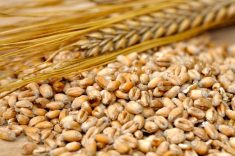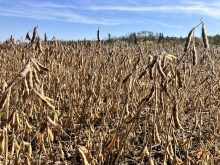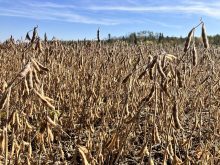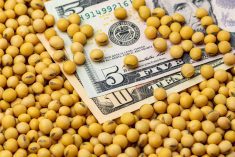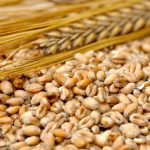This week’s commodities plunge has done little to dent concerns of continuing food price inflation, as grain prices held up better than most and fundamentals for the highly weather-sensitive sector are unchanged.
Grain traders have had their eyes glued to weather forecasts rather than economic data, as heavy rainfall slows planting in the U.S. Corn Belt and a drought in parts of the U.S. and Western Europe threaten wheat crops.
Oil dove 10 per cent on Thursday as weak U.S. and German data stoked worries about slowing global growth but any new rush out of top commodities would pinch, not hammer, agricultural goods, says fund manager Gertjan van der Geer.
Read Also
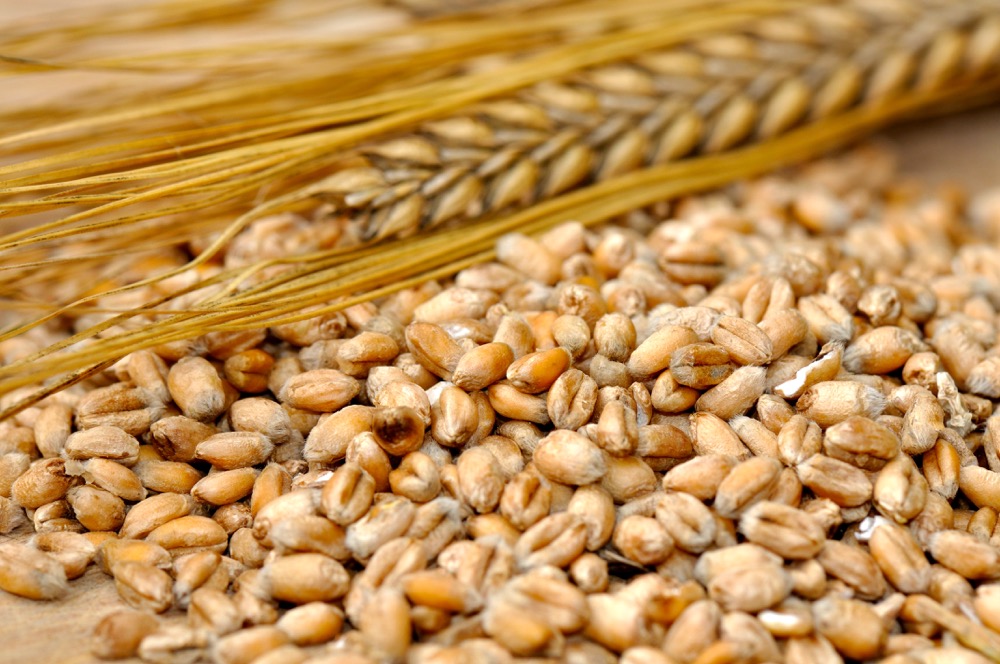
Feed grain weekly: Barley steady in late February
Feed grain bids in Western Canada were holding steady in late February, lacking any fresh market moving news.
“If investors get out of commodities as a whole it will also put some pressure on agriculturals, but fundamental investors may start looking at agriculture as the odd one out, the attractive one in the bunch,” said Van der Geer, who manages agricultural funds at private Swiss bank Pictet.
Most commodity markets remained jittery Friday, with oil seesawing before rising on a stronger-than-expected U.S. jobs report, which helped ease some economic worries. But gold, copper, iron, sugar or coffee showed no sign of regaining substantial ground after the previous session’s brutal losses.
European wheat futures were up two per cent at about 214 euros a tonne, after adding 0.5 per cent on Thursday, apparently immune to the brutal losses in commodities that stunned many traders around the world. Chicago wheat was 1.39 per cent higher at US$7.64 per bushel.
“The (agricultural) fundamentals are less dependent on economic activity. Soft commodities are more dependent on the weather,” Van der Geer said.
Clinton’s call
Earlier on Friday U.S. Secretary of State Hillary Clinton said the world has to take swift action to arrest steadily rising food prices and step up its commitment to sustainable agriculture, even as commodities prices were sliding.
Food prices, which hit record highs in February, have been a long running concern for the U.N.’s Food and Agriculture Organization (FAO), which said on Thursday its world food index rose slightly in April, boosted by worry about the U.S. grain crop.
FAO director general Jacques Diouf told Reuters Insider on Tuesday a weak trend in world food prices had already begun to reverse and prices were set to rise again as concerns persist over Chinese and U.S. winter crops.
Grains and oilseeds were tied to some extent to fluctuations in oil and other commodities due to their use in biofuels and with commodity-wide strategies used by some investors.
U.S. corn futures bounced in early Chicago trade in Friday with help from firmer crude oil as the U.S. jobs data encouraged renewed buying.
But weather and production issues continued to haunt the market and operators said slow U.S. corn plantings and the tightest stocks since the 1930s have helped soften the blow of the commodity selloff.
Wheat has also been underpinned by adverse weather. Severe drought in Texas and the U.S. Plains threatens to cause significant crop losses, while persistent dry weather in France, Germany and Britain could harm crops in Europe’s bread basket.
Commodity picking
“There are such low inventories that if the U.S. Corn Belt stays too wet too long it may push farmers to switch crops. That could mean even less corn and we would see new inflationary pressures,” Van der Geer said.
Philippe Chalmin, an academic who advises the French government on food issues, said a commodity selloff had been long overdue as prices “were nearing the sky” but he believes investors will do some “commodity picking.”
“Agriculturals appear best placed to do well. Not all of them will (do well), but there are some where we have real issues underpinning prices. This is the case for corn,” added Chalmin, who said the weaker dollar and Goldman Sachs were the double trigger of Thursday’s rout in commodity markets.
The U.S. bank advised customers to take profits from major commodity markets three times in early April, saying prices had moved too far, too fast, and that speculators had pushed prices ahead of fundamentals.



